6 books that shed light on student movements in Bangladesh
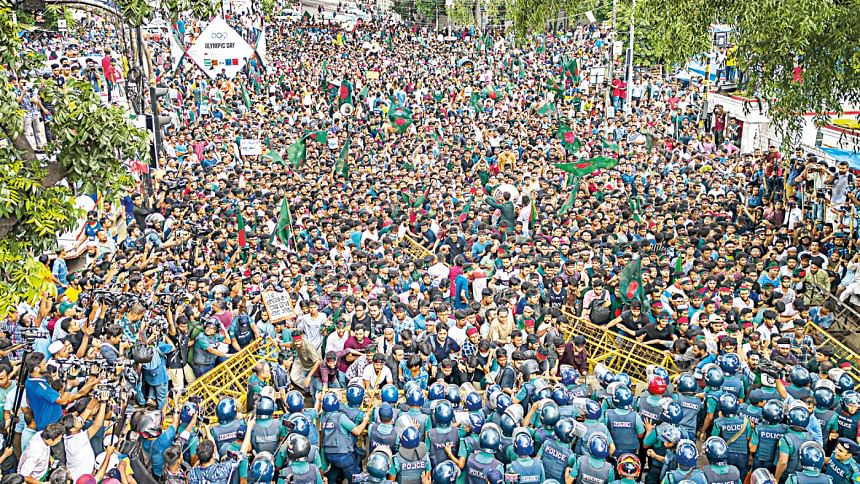
As we attempt to grapple with the unprecedented turmoil Bangladesh experienced over the last few days, and particularly as we spend time away from digital devices, here's a list of books that might allow us to comprehend the inner mechanisms of movements, revolutions, and activism at large.
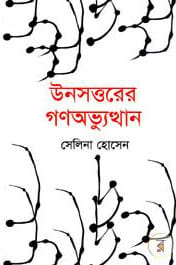
Unoshottorer Gono Obhyuthhan
Selina Hossain
Chandrabati, 2016
One of the movements which helped accelerate the Liberation War of Bangladesh was the Mass Uprising of 1969. Initiated by students, it gathered rapid popular support; not long after, people from all walks of life joined the protesting students. Enriched by the experiences of previous movements, the Mass Uprising had shaken the establishment of the time to its core, and the ruling regimen was forced to organise a general election for the first time in the country's (then East Pakistan) history. Selina Hossain chronicles the movement in her brilliant prose and takes readers back to those tumultuous times.
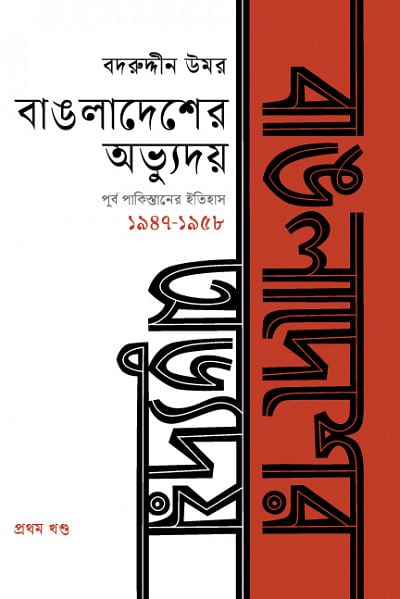
Bangladesher Obhudhyoy
Badruddin Umar
Baatighar, 2023
Badruddin Umar, a noted historian, has written multiple books analysing the movements of East Pakistan from a Marxist perspective, through the lens of workers and peasants from various regions. His book, Bangladesher Obhudhyoy is a scholarly work on several movements from this angle. Written in two parts, the first volume documents the struggles between 1947 to 1958 and the second covers the period between 1958 and 1971. The second volume covers a number of notable movements, including the Education Movement of 1962, the 6-Point Movement of 1966, and the Mass Uprising of 1969.
Umar's research shows how these movements were not limited to a specific section of society, but had truly transformed into mass movements as a result of the participation of all classes of people.
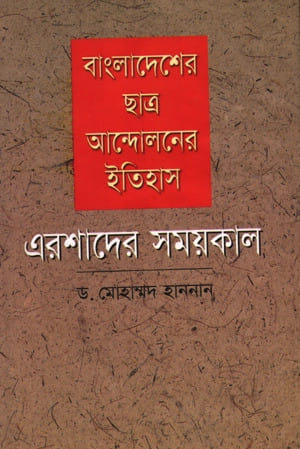
Bangladesher Chhatro Andolon Er Itihash, Ershader Shomoykal
Dr Muhammad Hannan
Agamee Prokashoni, 2017
Students have always been the first to rise against dictatorships, whether in pre- or post-Liberation War Bangladesh. The mass movement against then-president Hussain Muhammad Ershad during the 1980s is a testament to that fact; students were the first to protest against his autocratic rule and many even gave their lives for the cause. Dr Muhammad Hannan is a prominent writer and has written extensively on the topic of student rebellions from different periods of Bangladesh's history. His experiences are highlighted in this book, where he not only documents the resistance movement against Ershad, but also covers the developments in Ershad's autocratic rule from its inception to its demise.

Arek Falgun
Zahir Raihan
Anupam Prokashoni, 1969
Set in the spring of 1955, three years since the Language Movement, Arek Falgun tells the stories of several people—primarily university students—as they navigate the tumultuous political scene in Dhaka in the movement's aftermath. The book broadly follows the students' attempts to organise and mourn those martyred in 1952 as the Pakistani regime continuously attempts to quash any and all signs of resistance. Mere acts of mourning, such as raising black flags, wearing black badges, and raising monuments to the martyred, are viewed by the ruling regime as dangerous and incendiary, but perhaps more importantly, as a sign of disobedience.
Arek Falgun ends on the often-quoted line, "Ashchhe Falgune, amra kintu digun hobo" ("Come next Spring, we will be twice as many"), which—although sometimes misquoted as a romantic gesture—is in actuality, a jab aimed at the deputy jailer who cannot find enough space in his prison to accommodate all the students arrested after a protest. It is a taunt that rings true as a beacon of hope, and both an assurance and a vow that, come what may, resistance will continue unimpeded.
Zahir Raihan's narrative unfolds almost as slice of life, following the personal and political lives of not only student organisers and protesters, but also those of the Pakistani law enforcement, collaborators, and people who remained apolitical. The stories of growing resistance that are intimately tied to and deeply impacted by the lives of their characters, are at once timeless and painfully human. Nearly 70 years on, readers might find resemblances between the occurrences of the book and current events incredibly striking.

Freedom Is A Constant Struggle
Angela Y Davis
Haymarket Books, 2016
Compared to most other entries on this list that focus on Bangladesh-centric movements, Freedom Is A Constant Struggle provides a more international and transnational look into movement building and collective organising. It touches primarily on the issues of Ferguson, Charleston, and Palestine. The book is a collection that features a number of interviews Frank Barat, its editor, conducted with Angela Davis over the course of several years, and speeches she, the thinker, delivered at various universities around the world.
Davis' accounts are meaningful and informed by her decades of work and activism in the field, for which she was not only stripped of her academic position at the University of California (on account of being a member of the Communist Party) during Ronald Reagan's governorship, but was also incarcerated after being put on the FBI's most wanted list. As such, her experiences in radical collective organising and activism, as well as her incarceration, lend significant weight to one of the strongest black feminist and Marxist voices writing on anti-colonial resistance, prison abolishment, and the prison industrial complex, relevant even today.
The book also speaks to the discouraging nature of an endless uphill battle: For those currently in the thick of social and political activism, the struggle against capitalism, colonialism, and corporate rule often proves to be overwhelming and seemingly unwinnable. However, rather than admitting defeat or dismissing the issue altogether, the book accepts the often demoralising nature of the struggle and attempts to build from there on. Its hopeful approach is reflected not only in the conversations present in the book itself, but also Davis' oeuvre and scholarship.

Complaint!
Sara Ahmed
Duke University Press, 2021
Centered primarily around academia, Ahmed's Complaint! takes a critical look at the conceptual apparatuses around the task of "complaining" at an institutional level. She points first to the marking of the complaint itself as a problem, and next to the ways in which the person making the complaint is marked as the problem. Referencing some of her earlier thoughts, particularly how negative affects stick to bodies and identities that are unwelcome or are considered extraneous, or even act as blockages to the smooth functioning of a system, Ahmed remarks how those that make complaints become the problem, instead of the problem they were complaining about in the first place. Getting stuck with such a marker prevents legitimate complaints from being registered. An astutely observed work detailing the inner mechanisms of institutionalised methods of silencing dissent, criticism, and mere disagreement, Complaint! is a must-read for those feeling stifled by such processes.
Sadman Ahmed Siam is a contributor to DS Books.
Amreeta Lethe is a sub editor at Star Books and Literature.
Dr Nazia Manzoor is the editor of Star Books and Literature.
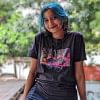

 For all latest news, follow The Daily Star's Google News channel.
For all latest news, follow The Daily Star's Google News channel. 


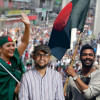





Comments